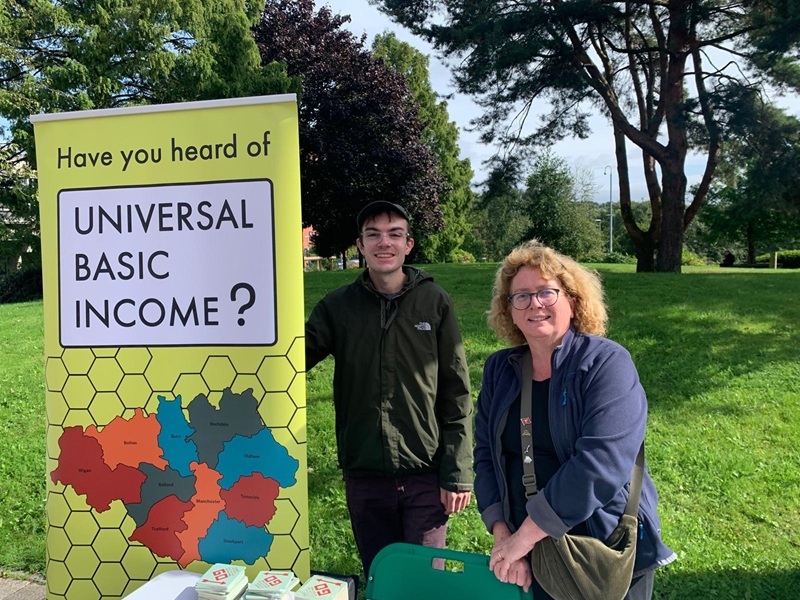Then in November 2022, ChatGPT exploded into our lives, and suddenly the robots were coming – for your job and your children’s jobs.
When I asked ChatGPT: “What are good reasons to introduce a basic income?”, it came up with 11 points. The first being ‘Poverty Reduction and Economic Security’, which is what many arguments around basic income start with. But the second was ‘Addressing Job Displacement from Automation’, divided into the ‘Impact of AI and Automation’ – the risk of jobs being replaced, especially “low-skilled or repetitive ones”, and ‘Facilitating Transition’ – “providing a financial buffer for individuals who need to retrain or acquire new skills.”
This, however, is still bound up in the current model of how the job market works. The 10th point ChatGPT came up with offers a pointer to the radical transformation to come: ‘Adapting to Changing Work Patterns.’ It isn’t only the low-skilled and repetitive work that’s going to disappear – we all know AI is threatening white-collar and professional jobs, and although the jury is still out on the extent to which human creativity can be replaced, we’re all now wondering how much musicians, novelists and film-makers have to fear.
So what will there be left for us to do? What will we live on when the majority of us are no longer paid to do anything? Who will buy the goods and services that the ‘robots’ are producing, when most people won’t have an income? A basic income is going to be a vital part of sustaining the economy so the whole circus doesn’t collapse.
These arguments, while valid, are based on the idea that a basic income will somehow substitute for the current social security system. But there are deeper moral arguments for its introduction. Guy Standing, the godfather of basic income in the UK, is passionate about “access to the commons”: the freedoms we used to have, to graze our goat on common land or to collect firewood in the forests. These were taken from us, Standing argues, and we should be compensated for them with a basic income.
AI could hold untold opportunities for our collective future, but not if it’s used to extract wealth and consolidate power for a few billionaires. Today, the commons are again being plundered for the financial gain of a few at the top. AI models would not exist without the content created by all of us. We’re entitled to a cut of the profits, and in this sense, a basic income becomes not a hand-out, but a dividend that is rightfully ours as citizens.
There are many other arguments for the introduction of a basic income, and a powerful one is that, far from costing money, it will over time save money for the Treasury. If this seems fanciful, that’s because we’re so used to short-termism: our politicians cannot look beyond the constraints of the current election cycle and do what’s necessary for the long-term. However, there is evidence to show that the introduction of a basic income can lead to improvements in mental and physical health, reduce crime, reduce homelessness, improve levels of education, encourage innovation and creativity, and reduce inequality.
AI may in the end be a catalyst for the introduction of a basic income. This will require a commitment to take the longer view. Politicians, businesses, the media and the public – we will all need to be on board.
Alison Hawdale is co-founder of UBI Lab Manchester.
Do you have a story to tell or opinions to share about this? Get in touch and tell us more. Big Issue exists to give homeless and marginalised people the opportunity to earn an income. To support our work buy a copy of the magazine or get the app from the App Store or Google Play.










